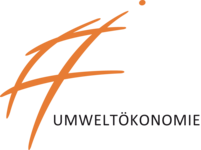Case Study 4 Low carbon transition – potentials and limitations for tour operators
Low Carbon Mobility Transitions. Oxford: Goodfellow Publishers 2016 S. 178 - 187
Erscheinungsjahr: 2016
ISBN/ISSN: 9781910158647
Publikationstyp: Buchbeitrag
Sprache: Englisch
Doi/URN: 10.23912/978-1-910158-64-7-3288
| Geprüft: | Bibliothek |
Inhaltszusammenfassung
There is little doubt that emissions from tourism must be reduced. A low carbon transition tends to be debated within the existing growth-centred and fossil fuel-driven political economy; this offers potentials but also sets limitations. The role of businesses in climate change is complex. From a political economy perspective, businesses are crucial actors in reducing emissions, simply through their decisions around products and operations. Yet a political economy approach also sees governanc...There is little doubt that emissions from tourism must be reduced. A low carbon transition tends to be debated within the existing growth-centred and fossil fuel-driven political economy; this offers potentials but also sets limitations. The role of businesses in climate change is complex. From a political economy perspective, businesses are crucial actors in reducing emissions, simply through their decisions around products and operations. Yet a political economy approach also sees governance and business as interlinked. Businesses can influence governance, though they do not shape rules and norms in isolation. They are influenced by the dynamic regulatory, discursive, technological, and productive environment, in which they operate. This case study provides evidence from tour operators, which are addressing emissions from their products and operations, but also demonstrates that the context in which tourism businesses operate sets limitations to how much change may be implemented. The chapter argues that debates around a low carbon transition for tourism need to take into consideration the complexity of corporate, economic, environmental, political, and consumer interests and their links and interactions.» weiterlesen» einklappen
Klassifikation
DFG Fachgebiet:
Wirtschaftswissenschaften
DDC Sachgruppe:
Wirtschaft
